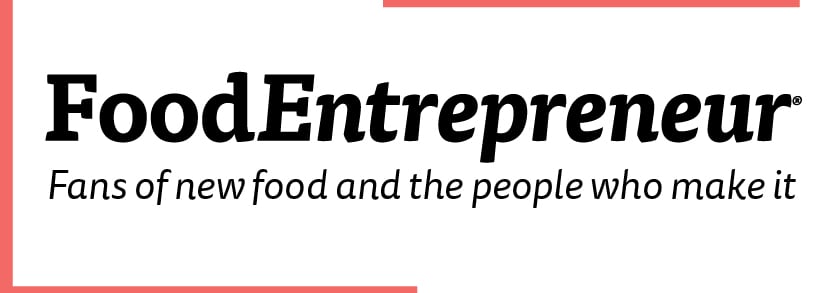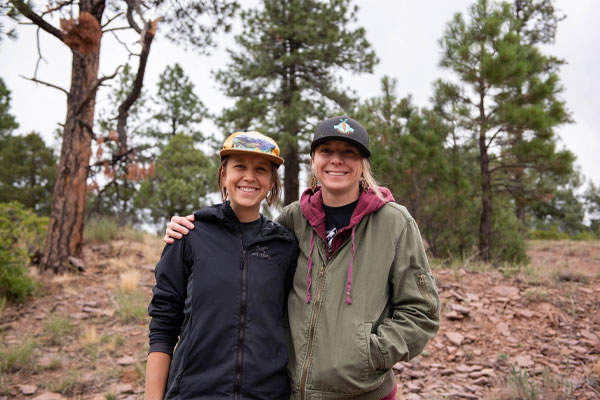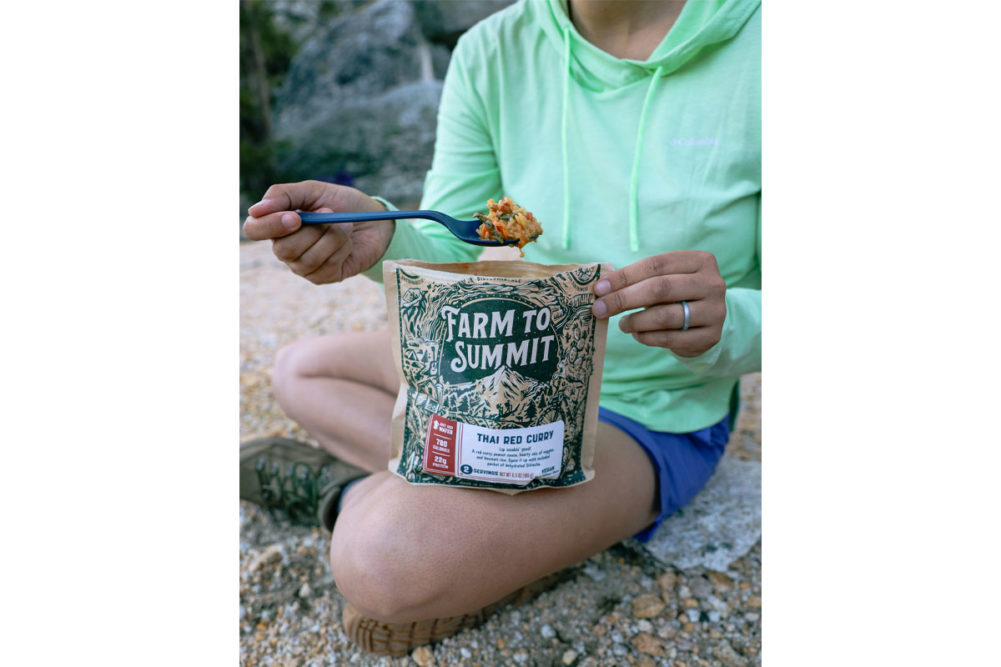 DURANGO, COLO. — Sustainability is the heart of Jane and Louise Barden’s business, Farm to Summit. Farm to Summit manufactures dehydrated, plant-based meals that may be prepared in minutes by pouring boiling water into omnidegradable bags. Omnidegradable bags are able to break down in any environment where microbes are present, even in a landfill, the company said.
DURANGO, COLO. — Sustainability is the heart of Jane and Louise Barden’s business, Farm to Summit. Farm to Summit manufactures dehydrated, plant-based meals that may be prepared in minutes by pouring boiling water into omnidegradable bags. Omnidegradable bags are able to break down in any environment where microbes are present, even in a landfill, the company said.
Living in a rural area, the company has limited access to municipal compost facilities. Not having access to these facilities, most of the compostable plastic may become trash, which the couple did not want for their packaging. While the pouches cannot be composted in all municipal compost facilities, because of longer composting times, however they are consumer compostable and will break down in an anaerobic landfill environment.
The couple’s business supports local farmers and reduces food waste by taking in vegetables that would be deemed “seconds” due to odd shapes and blemishes.
“We’re so committed to being environmentally conscious,” said Louise Barden, co-founder and co-owner of Farm to Summit.
The couple chose dehydration instead of freeze drying their meals because of cost efficiency and texture.
“We looked at freeze drying our meals but that was outrageously expensive, and it can be cost prohibitive for a startup business,” Barden said. “We source all of our produce within the four or five months of growing seasons we have, then we store and use that produce throughout the year.”
Barden said dehydrated meals also tend to hold their texture better than freeze-dried meals.
“We’re working with vegetables and when you dehydrate vegetables and rehydrate them, it almost looks like what you cook at home,” she said. “Whereas when you freeze dry it and reheat it (vegetables), it’s mushy.”
 Louise, left, and Jane Barden created Farm to Summit to provide, plant-based dehydrated meals ready in seconds. Photo: Farm to Summit
Louise, left, and Jane Barden created Farm to Summit to provide, plant-based dehydrated meals ready in seconds. Photo: Farm to SummitThe meals initially were intended for backpackers and car campers but have since grown in appeal to consumers facing a busier lifestyle.
“It’s evolved and as we grown we’ve realized there’s a lot more segments than we know,” Barden said. “There are a lot of folks eating them that are busy at home or in an office that can heat them in minutes and go. Our meals have also reached the houseless community in our region through foodbanks and grant money. It’s nice they (homeless consumers) can get a gourmet meal that’s nutritious and easy to make.”
Consumers may choose from flavors like Thai red curry, harvest green curry, three bean chili and cornbread, green chile macaroni and cheese, garden macaroni and cheese, white bean potato stew, Puebloan beans and rice, Thai carrot slaw, green chile cheddar grits, and golden oats. Flavor inspirations stemmed from the couple’s backgrounds.
“A lot of meals are inspired by Southwestern cuisine,” Barden said. “The green chile is very Southwestern and is a really special niche that our area has. I’m from Georgia so some things have a southern twist. But you’ll see there’s carrots in almost every meal because farms grow a ton of carrots here and carrots grow weird so we get a lot of carrot seconds. (It’s the) same with cabbage and zucchini.”
The company’s manufacturing facility is attached to its brick-and-mortar store in Durango. It features a kitchen, dehydrators, packaging room and a shipping corridor.
“It’s all done in-house,” Barden said.
While the meals are manufactured in- house, the company’s lattes are outsourced to a co-packer in Denver.
“This was really a big thing for us because we used to fill those in house as well,” Barden said.
The lattes were added to their product line out of a personal necessity for (Louise) Barden.
“As a research ecologist before I started this business, I did my masters in South Africa,” she said. “I was constantly in the back country trying to figure out where to get my coffee source from so I said, ‘does anyone want some organic coffee that has milk powder already mixed up and you can just add water like the meals.’ We decided to make it and it took off as a separate line from our meals.”
As a three-person team the company’s go-to-market strategy is spontaneous, Barden said.
“It’s really kind of gorilla style,” she said. “People on Instagram post they love us and/or take photos for us saying they love us. It’s really a community-fueled business right now.”
The brand is omnichannel focused and may be found in small gear retailers, direct-to-consumer through its website and they are aiming to land in REI stores.
“We’re applying for the REI Green Light Program, which if we get in will allow us to access REIs across the country,” Barden said.
The two-year-old brand is aiming to grow as sustainably as it can.
“We’re looking at getting warehouse space next year that will allow us to have more employees, bigger equipment, and more efficient processes,” Barden said. “We also want to work with more farmers nationwide to capture seconds. We’re also looking to add three more meals that should release in April of next year.
Enjoying this content? Learn about more disruptive startups on the Food Entrepreneur page.





